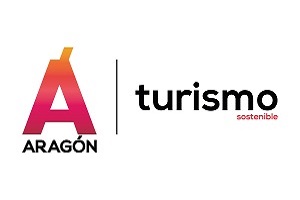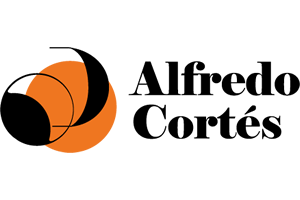In an interview with Go Aragón, the mayoress of the capital of Huesca takes stock of the first stages of her mandate and analyzes the future challenges she has to face at the helm of the city. Tourism, urban development and the creation of the biosanitary campus are the three axes that the mayor sets out in this roadmap.
On June 17, Lorena Orduna (Huesca, 1976) was sworn in as mayor of the capital of Huesca. Since then, four months have passed, with the San Lorenzo festivities just after her arrival, in which the councilor has already been able to get in touch with the reality of the city and the position she now holds.
In an interview with Go Aragón, Orduna takes stock of these first stages of her term of office and outlines the main lines of her administration, in which tourism, urban development and the creation of a biosanitary campus are priorities.
The first stages of the mandate have already passed, what are your feelings after these four months?
The sensations are very good, very intense, and the truth is that it is being an exciting challenge. I said at the beginning, when I was elected by the people of Huesca and we had the investiture process, that it seemed that it was going to be an exciting challenge and so it is. For me, it is an honor to be the mayor of my city. There is a lot of work ahead of us and we have a great challenge for the city. I am very happy, very satisfied and, with my team, phenomenal.
Briefly summarizing, what is the state of the city right now, its strengths and its needs?
The city has many strengths. Let’s start with the positive, because I always like to speak positively; the way things are, we also deserve a bit of positivity. Huesca is a wonderful city, which has a lot of years of history, and we have heritage that, perhaps, we have not been able to show it as the city deserves. And we have many other things. It is a city that we can admire in 20 minutes; we have a spectacular gastronomy, we have pastry and we also have a lot of culture. It is a city that anyone can come 3 or 4 days to visit before going to the Pyrenees, which is the great tourist focus that we have in the province.
But we can not forget Huesca, the capital is one of the great forgotten and that is the situation I have found in my city. It is something very demanded by hoteliers and traders, also from the institutions; we all think that what we have done these years ago or what has not been done to claim the position of the city as a provincial capital, with all the benefits and quality of life that we have. Anyone who wants to develop a professional or family future, this is a great city to do so.

You come from the business world, what relationships are you going to establish with the business network of Huesca?
As the business network is my forte, for the 25 years I have been in the private sector, the truth is that it has been, perhaps, the easiest. Huesca is a city of such a size that we practically all know each other, and we have worked hand in hand with both local commerce and companies. With the confederation, with Ceos, with the CEOE and with Amephu we continue working to develop those strategic lines that Huesca has. Moreover, we cannot forget that 50% of the industrial land is free. We are a provincial capital and we will roll out the red carpet for anyone who wants to set up here.
We are also supporting local commerce, because it is important. But for local commerce to develop and for the hotel and bakery business to continue at the level it has, we need people to come here. That is why I am so obsessed with attracting people and attracting quality tourism, to make it a city that everyone wants to visit and that they leave with a good feeling of what Huesca is.
I understand that, due to its location on the map, you are not only looking to promote national tourism, but also international tourism…
That’s right. During the San Lorenzo festivities in August, we can see that a lot of French people come to the city. July and August are the times when there is a lot of French tourism. And it is necessary to promote it, to extend it in time, to make it reach the long weekends of October and November. In addition, as we now have very good weather, almost in October, we have some aspects of the city that can be visited, we have a lot of history that we want to put in value and that we want to take up again, that perhaps in these years it had not been done.
We have many historical issues that can be put in value for all kinds of tourists to come, especially French, who are next door, but not only French, but also many Aragonese. I travel a lot to Zaragoza and many people have not been to Huesca. And I tell them: ‘We are 50 minutes away, how is it possible that you have not been there? You have to come’. Aragonese, Navarrese, Catalans, Basques and Madrileños, of course. The ski slopes are full every winter, the summers we also have the Pyrenees full and I’m going to convince them to come (he laughs).

One of the first strong points of the mandate as soon as you arrived were the San Lorenzo festivities, what is your assessment?
You enter to govern on June 17, you get San Lorenzo and you can govern for 20 years (laughs again). You do like a master’s degree ‘cum laude’; behind the festivities the days are so intense, you learn, you normalize so many situations and you work so much… The balance of the festivities, very good. They were inherited festivities, some nuances we did have time to change and, above all, we had to close practically everything because, despite what they say, they had been left in a state in which we had to get to work this government team. But very good, the experience was very good, in spite of some issues that always occur. And already, preparing for next year.
Will next year’s festivities have a different feel?
Yes, the people of Huesca were very upset because they had not been listened to during the last eight years. We are doing the opposite; here we receive any businessman, neighbor or association that wants to talk to me, to present a project, a complaint or a problem with which we can help them. And so we are doing, the agendas are flying because we are receiving everyone. But I believe that the people of Huesca deserve it and the companies that want to set up, of course, deserve it.
Not long ago the Association of Neighbors of Santo Domingo and San Martin named its first mainate, how does it look from the city council?
I see it well. We already commented it some time with the government team. As long as the neighborhoods, the associations of the neighborhoods and the peñas are in agreement and propose a logical transition, as it has been done with the incorporations of the danzantas, that this year two were incorporated, if the mainates have to arrive, we will accept it. But as a logical achievement. The time evolves and from the city council we do not have any type of problem.

Going back to the business world, you have experience in this field, what can you bring to the mayor’s office from this experience?
I think that anyone who wants to be mayor of his or her city has to have gone through private management, has to have worked in the company, has to know how to work. Because it seemed more complicated and many people, as they had no experience in politics, told me: ‘You are going to find something that may be too big for you, you are not going to know how to manage, the times are different, the bureaucracy is tremendous…’. I have the possibility of talking to many mayors in Spain who are in the same position, they come from the company and now they are mayors. And we are all finding it easy to manage because we had a lot of experience in this field. Above all, in managing teams, talking to people, setting roadmaps, achieving objectives… in the end it is about working, having an objective, planning and leading your team to achieve that objective.
We have several objectives for Huesca and it is a matter of planning to achieve them. I like to let people do what they want, but when someone gets distracted or perhaps slows down, I help them to speed up or direct. It is the experience I have in the business world, 25 years, which are not few and, for me, anyone who enters politics must first have worked in the private sector. It is important.
By the way, Natalia Chueca, in Zaragoza, also came from the private sector when she joined the consistory in the previous mandate and, in the current one, there are three mayors of the same sign in the three Aragonese provincial capitals, besides Jorge Azcón in the Government, can this favor the development of policies?
Very much so, of course. The experience of the three women mayors, both on a political and personal level, has been very good because I have two very good colleagues, two friends, that at any time we call each other and share issues. Besides, the rookie, so to speak, was me, because Emma is an incredible mayor who is also very much loved and has been for many years; Natalia had been a councilwoman for four years, she had more political knowledge, but she comes from the world of private enterprise, just like me. And the truth is that I have two allies and two friends. And with Jorge Azcón, obviously, who was mayor and is now president. He is a great person and we make a very good team.
The relations we have are great and, of course, for Huesca it will mean a change to have all these senses aligned, also with the Provincial Council. Let’s not forget Issac (Claver, president of the Huesca Provincial Council), who is also a person who comes from the private sector, is very active, very intelligent and, between all of us, I believe that we are going to give Huesca the ‘punch’ that it needed.
In the case of Zaragoza, are you going to try to encourage relations?
Yes, in fact we are already working with both Natalia and Emma on a collaboration agreement in the tourism sector in order to align the three provincial capitals. And, specifically, with Zaragoza, which is a city of 700,000 inhabitants and we are 50 minutes away, we have several open issues. Obviously, business, obviously, projection; decentralization, which Jorge Azcón is clear about. And we have just started, we have been here for four months, but we already have many issues on the table and we are already working on them, not only with Jorge, but also with his advisors, who have all been coming here. The relations, I insist, are very good among all of them.
Is mobility between Zaragoza and Huesca an issue on the table?
Of course, the commuter train that we have to promote between the two provincial capitals because, besides, we are both in agreement and we see it very clearly. Jorge Azcón, when he was mayor of Zaragoza, was also clear about it. There is a tremendous flow of movement between the two capitals and we consider that it is necessary to have a greater number of commuter trains so that people who want to live in Huesca or Zaragoza can come to work, study, go to the doctor or go shopping in the two capitals. Many people from Zaragoza come here to eat; they tell me that when they want to eat well, they go to Huesca.

And, looking at the Pyrenees, which is a tourist asset of all Aragon, from the capital of Huesca, is there any plan to take advantage of that potential?
We have a strategic plan that we are developing. Thousands of cars pass through the highway towards the wonderful Pyrenees and we want to put Huesca on the map, in the spotlight, as a provincial capital. That seems easy but it is not so easy. But well, we can do something and, in fact, we are already doing it. This Pilar long weekend has been wonderful in terms of data in Huesca; it has been years since we had so many visitors. Therefore, this inertia of work and this visibility that we are giving to Huesca, especially on my part, as mayoress and representative of the people of Huesca, is beginning to be noticed. And I am full of enthusiasm for that.
Finally, what would be the areas in which you would like to focus your mandate?
There are three: tourism, that is, that people come to Huesca and put the city on the map; urban planning, the development of the city at the urban level and the renovation of spaces in the historic center of Huesca, which would also involve the regeneration of the heritage we have; and training, the biosanitary campus that we discussed with Azcón in the campaign, the need for Huesca to have a lot of young people and life for the city, so that they can come here to study with the university campuses we have and develop. And, specifically, to develop them in the biomedical sector because we understand and we know that it is the future.
We have a big problem in the province with the effects of depopulation as well, the lack of doctors, of health workers, of nurses. And, going back to recover that tradition of Huesca, which comes from the year 1300, from the Salamanca of Huesca, the Sertorian University, is one of the three pillars that I am willing to fight for, until I get it.
Does this commitment to university education look good? Is the Government willing to support it?
Quite good. A few weeks after being sworn in, our president came to visit me officially and committed himself to the university campus, to develop the projects that already existed, that there is no reason to stop them, if they are good, they will be continued, and to bet on more. That is to say, Medicine is an evidence in Huesca and more things will come, more specializations in postgraduate courses, in masters… there is a variety of technical training that is totally implantable in Huesca, it is necessary and it can work phenomenally well. Because, in addition, the parents of students who come from abroad and live in Huesca like the city for their children. It is quiet and comfortable; perhaps we have a small housing problem that needs to be solved, that is so, but the city is fantastic for studying and living.
How would you like your term to end, what would have to happen for you to feel proud in four years?
First of all, I don’t want the term to end. Don’t give me four years, that’s too little and Huesca needs us to work more for it. I would like people to be proud that once upon a time in Huesca there was a mayoress who fought for the people of Huesca, who wanted to put her city on the map and who succeeded.















